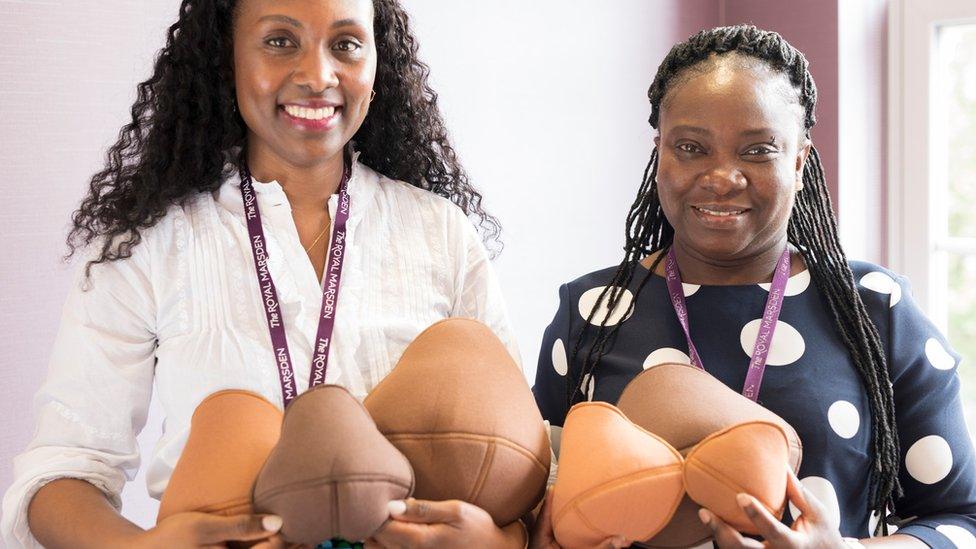Inside Poole Hospital's Maxillofacial Prosthetics clinic
- Published
A three-person team of maxillofacial prosthetists work at Poole Hospital
"This is my winter nose", says Phillip Sims as the final adjustments are done during his regular fitting appointment at Poole Hospital's Maxillofacial Prosthetics clinic.
He is one of more than 40 patients at the clinic who have gone through cancer or serious trauma resulting in the loss of a body part.
In his case, reconstructive surgery was not possible after after his nose was removed due to cancer.
Instead the hospital's specialist team created an extraordinarily lifelike set of replacement noses.
While the unit's prosthetic ears, eyes, noses and fingers cannot restore physical functions, the remarkable restoration of a patient's visual appearance has a personal impact that can be life-changing.
Mr Sims, 75, from Ferndown, recalled being "absolutely horrified" after being told 12 years ago that cancer had spread through his septum and that his nose would have to be removed.
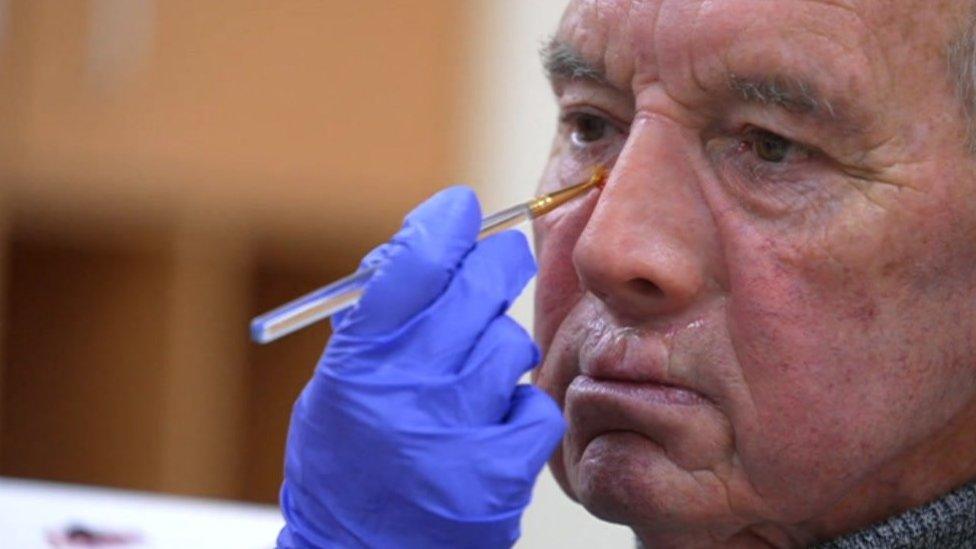
Phillip Sims wears different noses based on the time of year
"I might be old but I'm still quite vain," he said, adding: "I didn't want to go out, and when I did, people made comments."
He was fitted with a prosthesis and returns to the clinic every six months to have it changed.
"I'm getting my winter nose on," he explained.
"I've got several noses now - purely and simply because during the summer I get tanned and the nose blends in with my skin, so the nose doesn't stick out like a sore thumb.
"I don't worry about going out anymore - I lead a normal life. I'm absolutely over the moon with what they can do."
Bodies damaged by trauma and disease are put back together through a mixture of art, technology and medical science.
Moulds are taken from the patients, along with careful measurements and sampling of the colours and skin tone needed as part of the process in crafting a new anatomy part from a range of synthetic materials.
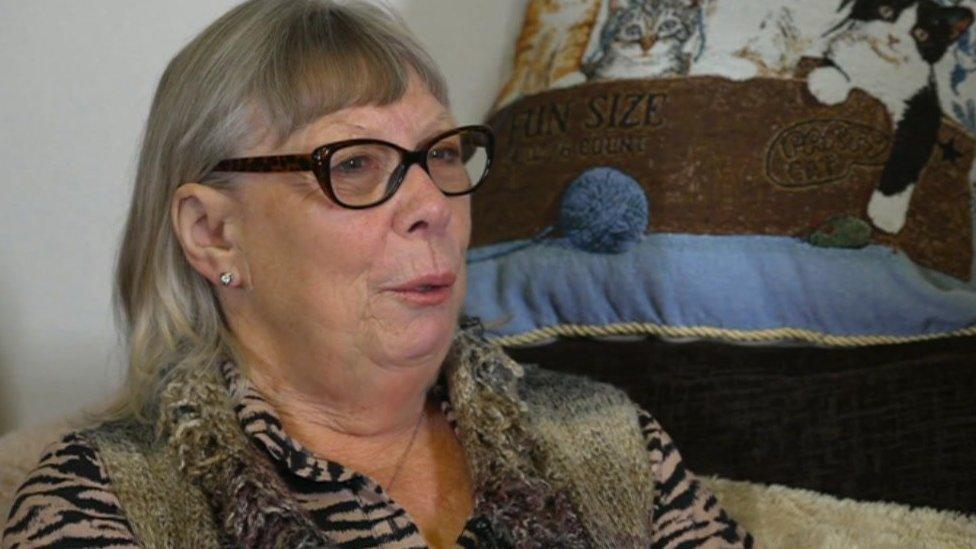
Susan Double's new prosthetic ear is attached using titanium plates
Part of a three-person team, maxillofacial prosthetist Sian Campbell said: "I enjoy the process - it's quite technical but it's also really artistic.
"You've got to get the accuracy right - the fit and the implant components.
"You get a really nice outcome for them and it makes it all worthwhile.
"With the materials we've now got available, we can really get that lifelike appearance."
"If I was making fingers all the time, I think I'd get a bit bored. I quite like making eyes - the artistic skill and attention to detail."
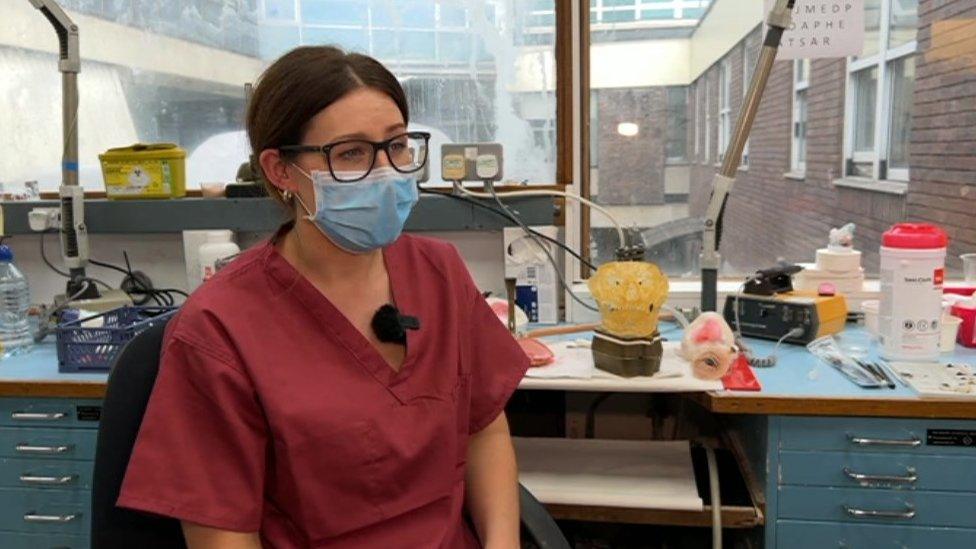
Sian Campbell is part of three-person team producing prosthetic anatomy parts in Poole Hospital
Another cancer patient, Susan Double, 74, from Poole, is now able to wear her hair up with confidence after the unit provided her with a new ear.
"I spent all last summer wearing a scarf," she said.
"It made you feel self-conscious, always wanting to hide it all the time - I didn't have much confidence."
Three titanium implants were placed in her skull to hold the magnets that help the prothesis stay in place.
"When I first looked in the mirror it was amazing, because I'd been all that time without an ear, and suddenly there was one," she said.
For 72-year-old John Darnell from Weymouth, his new prosthetic eye, surrounded by silicon, means he no longer has to wear the patch he has had since having his eye removed due to cancer two years ago.
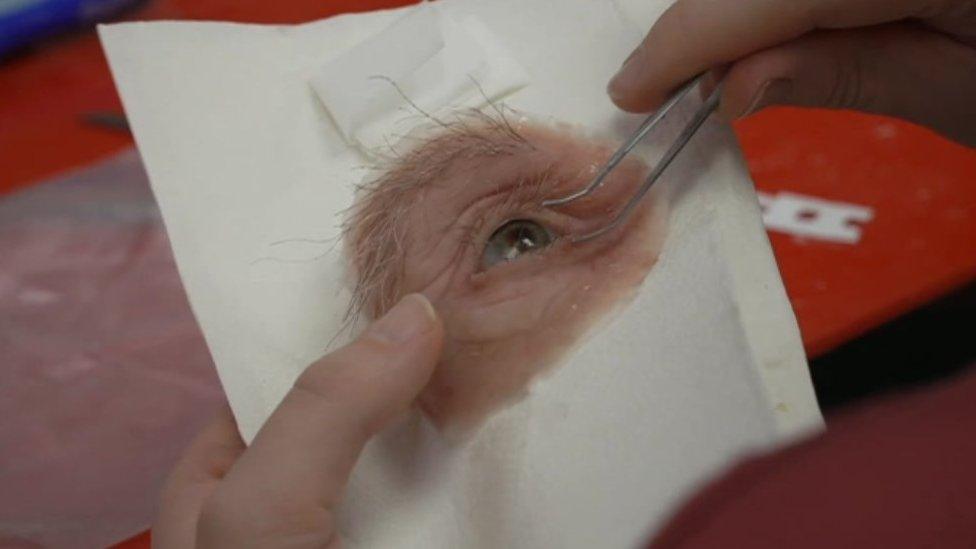
John Darnell's prosthetic eye was mounted on silicone
"They said they could treat the cancer but they did warn me I'd have to lose the eye," he said.
"When you are on the bus, people see the patch and tend to stare - especially children. I tend to make a joke of it.
"I'll be a lot more confident going out and about. It's not so much for me, its unsightly for other people and it might upset people."
For Ms Campbell, the work is about improving quality of life and boosting patients' confidence.
"We play a big part in helping them find their way back to normality and giving them confidence to face the world again.
"That journey is just amazing to witness."

Follow BBC South on Facebook, external, Twitter, external, or Instagram, external. Send your story ideas to south.newsonline@bbc.co.uk, external.
Related topics
- Published1 February 2023
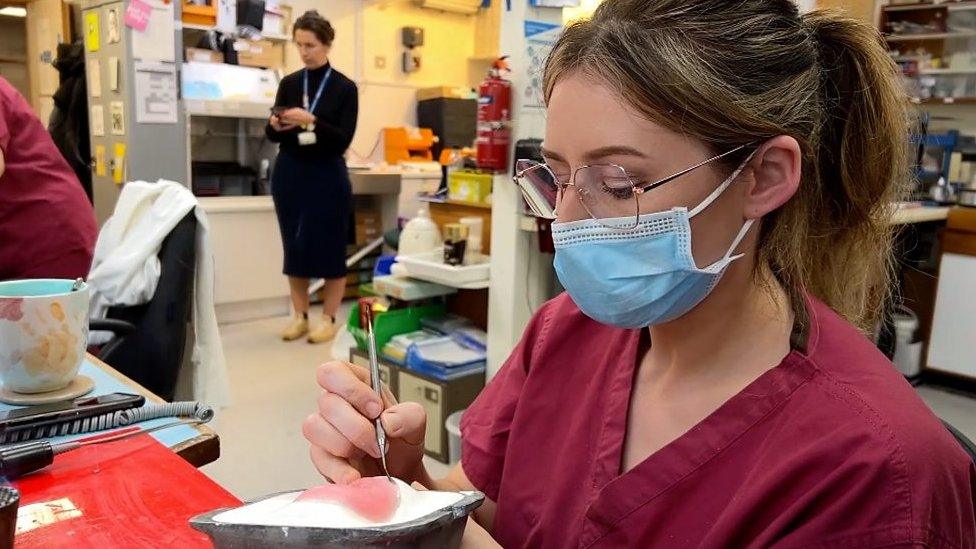
- Published14 December 2022
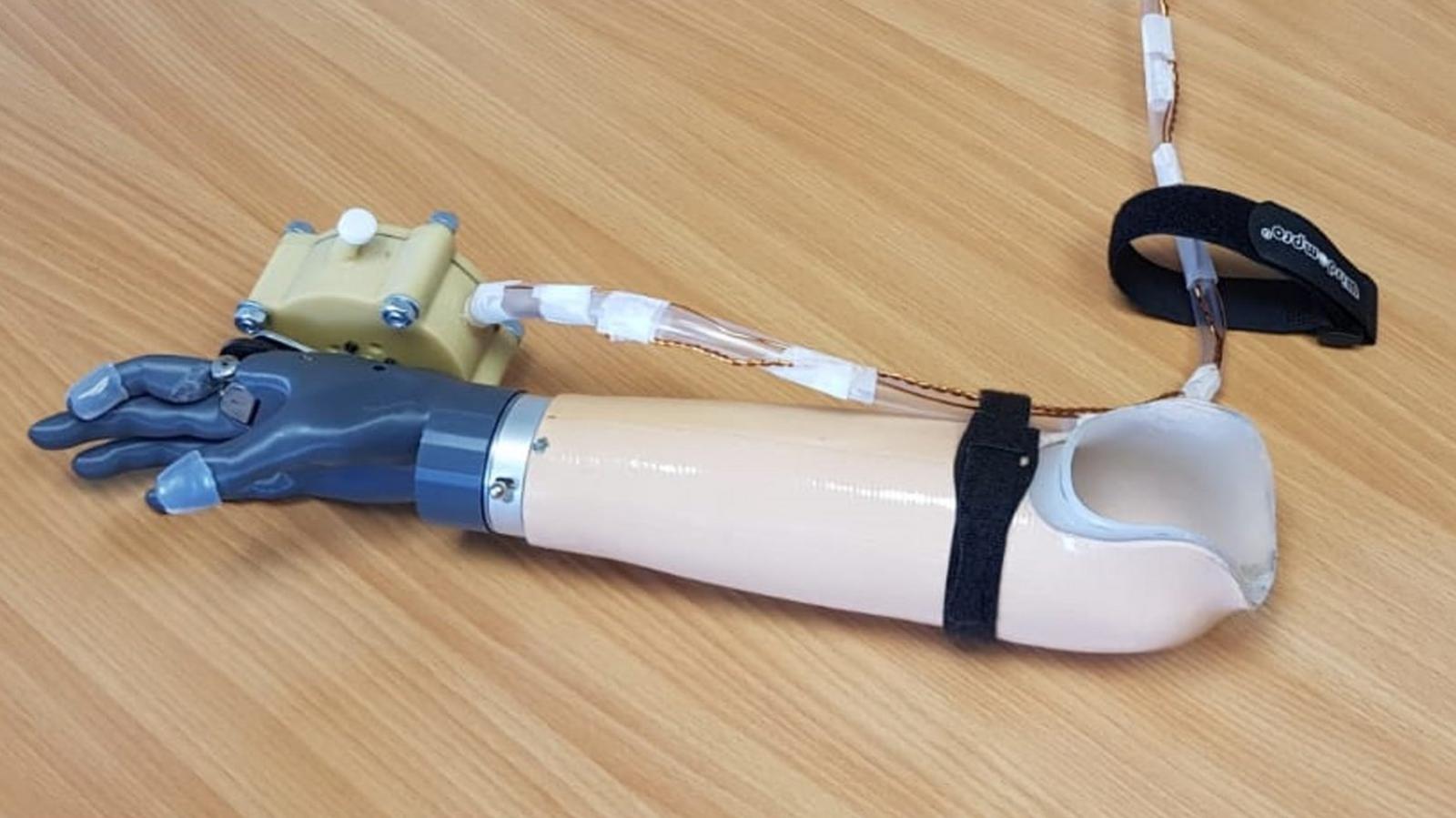
- Published3 October 2022
